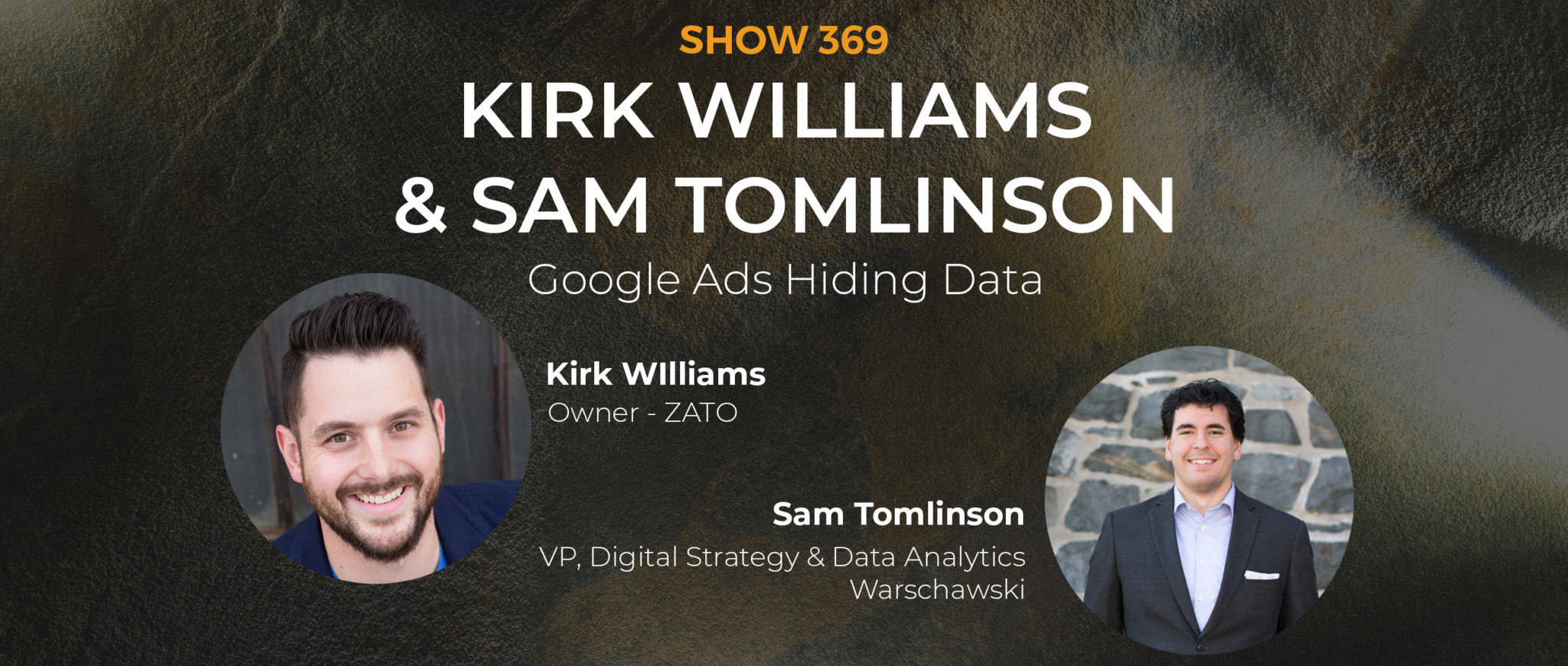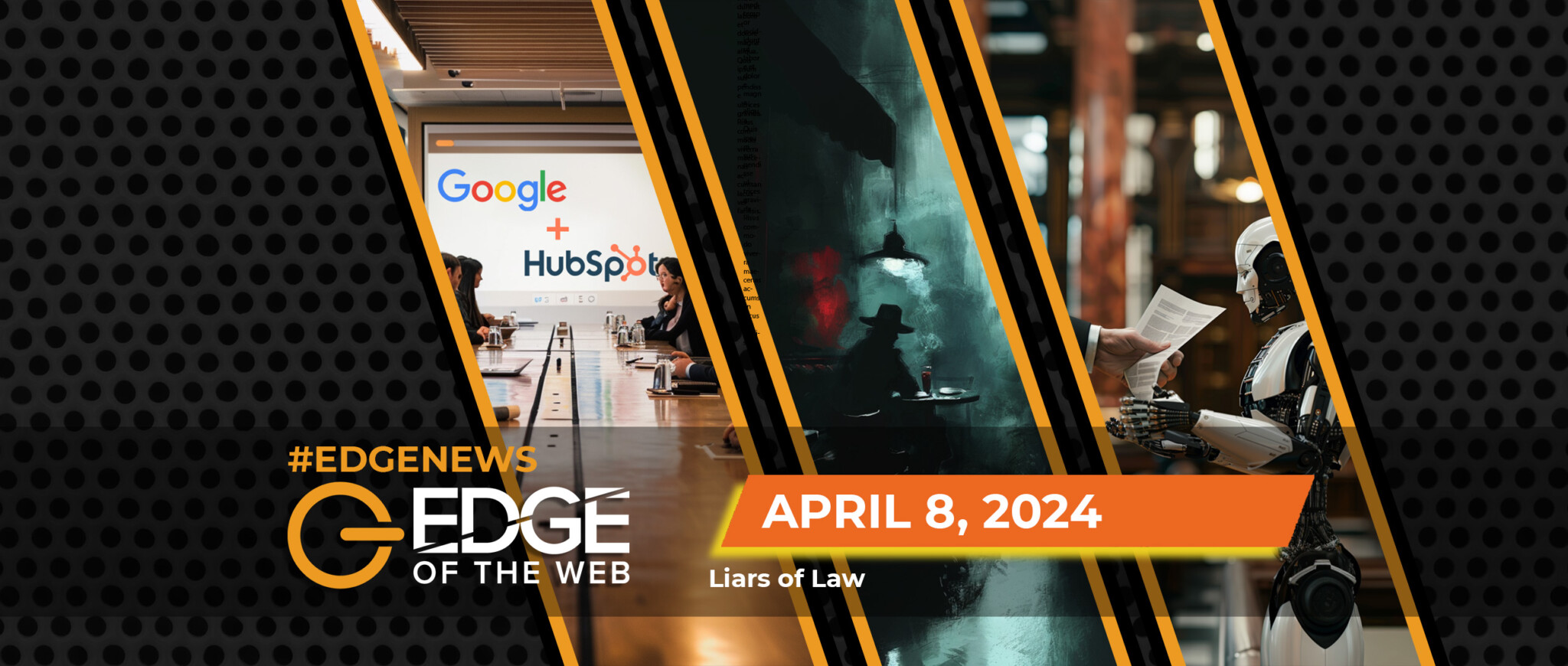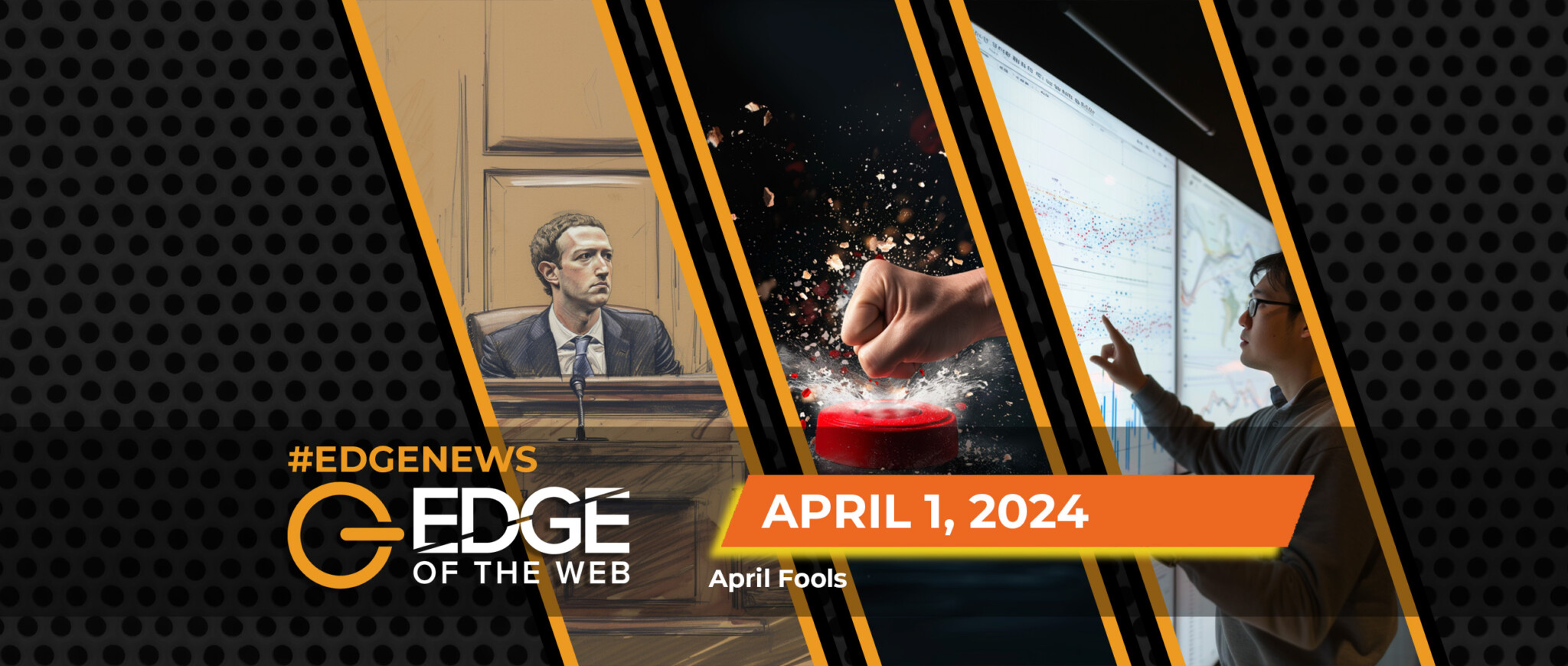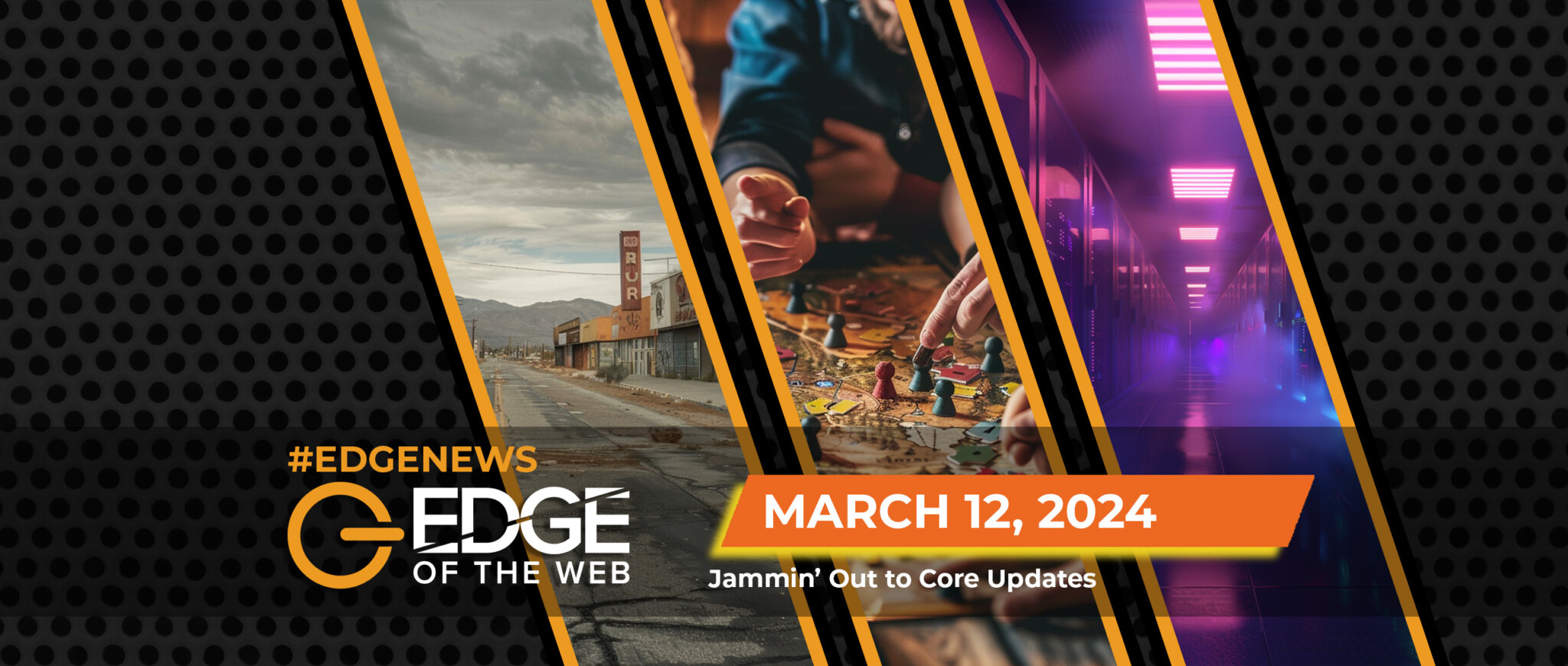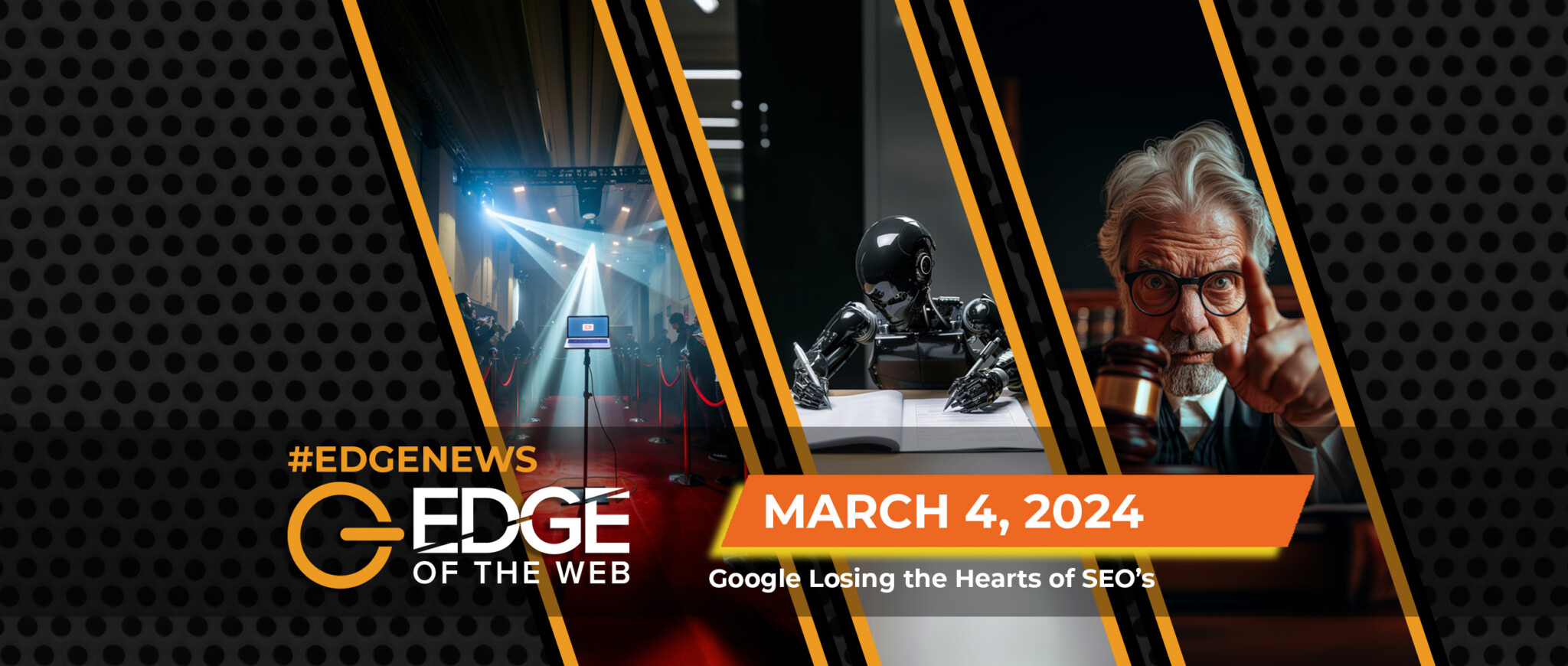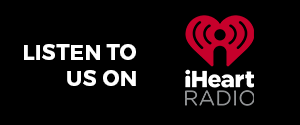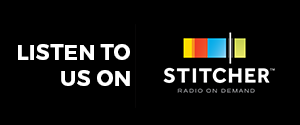The latest digital marketing bonus news roundup was a special live event featuring host Erin Sparks and Creative Studio Producer Jacob Mann along with two industry expert guests: Kirk Williams, Owner of ZATO, and Sam Tomlinson, Vice President of Digital Strategy and Data Analytics at Warschawski. Here’s the news roundup from Episode 369 of the award-winning EDGE of the Web podcast:
Google’s Bombshell Announcement
It was September 2 when Google announced that it was making a change to the Google Ads Search Terms Report users would get. Specifically, it said search queries without significant data would no longer show in query reports. Google wants to include in the report only those terms that were searched by a significant number of users and noted people might see fewer terms in their reports moving forward.
- Kirk Williams: I feel like everything Google does seems to have something do with them being terrified of getting sued. It also has to do with their business, and therefore is intertwined with them wanting to make money. Neither of those motivations are inherently bad. But on a deeper level what does a change like this mean in terms of how Google views the advertisers (brands and agencies) who are shelling out money for paid search? To me, just in terms of the change and its wording, it shows Google doesn’t really view its advertising “partners” as true partners. Instead of communicating well, it’s shutting off some of the insights users could get into their own spending on the platform. There’s a lack of respect there.
- Sam Tomlinson: I think any data privacy concerns are very low on the list of Google’s priorities. Much higher on that list are things to do with profits and making money, which includes the constant push for more automation. Google is acting like the monarch or monopoly it has become. Instead of looking at each change in isolation, step back and look at the pattern you see in Google’s actions over the past couple years. Matching was changed so much (via closed variance) that intention was lost. Then there was the optimization scores and overlaying audiences. Then there was auto-applying campaign recommendations. All these things take away more and more manual control from advertisers. Google thinks advertisers are bad at these things (even if they’re not) and that Google is better at these things. (even though they often aren’t). Google wants you to just hand over your money and let them handle it, even if the results are disastrous. The money move here is that because paid search in the US is saturated, meaning they can’t get more advertisers and they can’t get more market share) they’re going to have either develop new channels of advertising to sell or push more advertisers into the same auction to drive up the price. And Google doesn’t care about making advertisers mad because Google doesn’t view advertisers as partners, it views them as wallets to be tapped.
- Erin Sparks: Loss of control is important. How much data is going to be missing from these reports? What does “significant” mean? I saw one article where someone noted they were losing something like 28% of their visibility into what they are spending on keywords with the omitted data!
- Sam Tomlinson: I’ve seen the loss of visibility range from 10% all the way up to 85% for a small business with low search volume. But you paid Google money for keywords and now you lose visibility? And you’re losing visibility as well into Google’s often terrible matching. A dentist paying for “teeth whitening” might end up with Google substituting in “tooth whitener” even though those aren’t the same things! The former is the process or service, the latter is the actual stuff that is applied to your teeth. You’re paying for one thing but getting served another. Where else is that allowable?
- Kirk Williams: Yes, we’re seeing visibility loss of 25-30% with our clients. That’s a lot of your spend that is now just gone, hidden away, from your view. And so now the entity you’ve paid money to is now going say, sorry, I’m no longer going to let you know anything about the big chunk of your spend. That is crossing a line. It’s not that they’re evil, it’s that they don’t trust users to do it right.
The next big battle that will need to come out of all this is about data rights. What rights to our data that we’re paying for do we have when we buy into Google’s digital marketing platform?
Connect with Kirk Williams and ZATO Marketing
Twitter: @PPCKirk (https://twitter.com/PPCKirk)
Facebook: @PPCKirk (https://www.facebook.com/PPCKirk/)
LinkedIn: https://www.linkedin.com/in/ppckirk/
Instagram: @ppckirk (https://www.instagram.com/ppckirk/)
ZATO Website: https://zatomarketing.com
Connect with Sam Tomlinson and Warschawski
Twitter: @DigitalSamIAm (https://twitter.com/DigitalSamIAm)
Warschawski Twitter: @thewagency (https://twitter.com/thewagency)
Warschawski Facebook: @tehwagency (https://www.facebook.com/thewagency)
Warschawski LinkedIn: https://www.linkedin.com/company/warschawski
Warschawski Website: https://www.warschawski.com
Let the EDGE Keep You Up-to-Date!
Wouldn’t it be great to get your digital marketing news delivered right into your inbox? You can! All you have to do is go to EDGEofthewebradio.com and find the subscribe box at the very top of the page. It’s totally free-of-charge, and we will never use your email for anything except sending you the newsletter. You can also sign up by texting the word “EDGETalk” to 22828, but not while you’re driving! Enjoy these digital nuggets of gold from the EDGE – your source for digital marketing news.







